This project is a part of our shared program with Western Water And Sanitation Forum. Our team is pleased to directly share the below report (edited for clarity, as needed).
Background Information
Shivakala Primary School was started by the community as a nursery school back in 1990. Since then, it has grown into a large school with a primary section, early education wing, and a special unit that cares for pupils with physical and mental disabilities. The school is located in Shivakala Village, Shirere Sub-Location, Bukhungu Location, Kakamega Central Sub-County and hosts a total of 584 children; 501 pupils (261 girls and 240 boys) in primary section, 63 children (34 boys and 29 girls) in early education and 20 pupils (nine boys and 11 girls) in the special needs category. The school also employs a total of 18 teachers and four support staff.
(Editor’s Note: While this many people may have access on any given day, realistically a single water source can only support a population of 350-500 people. This site would make a great candidate for a second project. To learn more, click here.)
The Current Source
The school has a seasonal hand-pump borehole with water that cannot fully meet the need of such a large school population. The surrounding villages also depend on it as their only source of water. The borehole discharges very scanty, brown and turbid water that should only be fit for mopping floors. However, due to a lack of alternatives, this same water is unfortunately being used to provide drinking, cooking and hand-washing water to the school community. "Kakamega County Public Health Team has since condemned this water," reported the head teacher. "They have not only threatened to close our school but have also enlisted us as having failed to comply with the water safety and quality standards."
Sanitation Situation
The school has six latrine doors serving 283 boys and another six doors serving 301 girls while there are only four doors between teachers and staff. All latrine pits are almost full, smelly, and dirty. Some have loosely-fitted doors that make them uncomfortable to use. "We do crowd and form long queues during breaks as we compete to share these few doors of latrines," the girls confided. "The matter is made worse when the class teacher punishes us for reporting to class late after long queues in the latrine," said the boys, "We sometime have to urinate around the latrine area since we have no urinary points except these few latrines." The school only has one hand-washing point serving both teachers and pupils. A huge scramble to use these is always witnessed during lunch hours or between classes.
Shortages of both water and sanitation facilities have predisposed pupils to illnesses that are stomach-related, headache-related, and jiggers and malaria. Diarrhea especially results in dehydration and a greater intake of unsafe water, more so among the early education classes. "We deal with ill-health cases almost daily. This has not only interfered with children’s retention in classes but it is also straining the few resources we have since the school is always forced to foot medical costs for emergency cases," says the school health and sanitation teacher.
Construction
The school is in dire need of more sanitation facilities to help ease the congestion witnessed between classes and during lunch breaks. New VIP latrines will be constructed for students; and to prepare, they will work together to sink the latrine pits. Two supplementary hand-washing stations will also be installed. Constructing a rainwater catchment tank will give children an opportunity to drink water from a safe, reliable, and hygienic source. This will not only boost students' self confidence but will also help reduce ill-health cases attributed to the intake of contaminated water from the condemned borehole. In addition, sanitation and hygiene training will empower the community in areas of resource management, personal hygiene, and environmental hygiene. This will help eliminate the cases of jiggers and diarrhea reported above.
Project Results: Training
Training was held at the school compound on March 3-4. A letter was written to the head teacher informing him that training would be held within the school compound so he could organize the training venue ahead of time. He was also requested to choose the participants for the training. Participants were drawn from the representation of pupils, teachers and management board members. For sustainability purposes, pupils were drawn from classes five, six and seven. Two facilitators were responsible for teaching, while a total of 13 students, three parents, and two teachers attended. All present participated actively throughout, responding to questions and in the same way asking questions to find out more.
A wide range of topics were covered, including:
- Primary Healthcare
- Local Disease Control
- Environmental Hygiene
- Local Resources
- Child Rights
- Forming a CTC Club and its Roles
- Operation and Maintenance of the Rainwater Catchment Tank
After the CTC training in the school, pupils and teachers from Shivakala Primary School are now aware that keeping hands clean is one of the most important steps we can take to avoid getting sick and spreading germs to others. Many diseases and conditions are spread by not washing hands with soap and clean, running water.
"Your visit in Shivakala primary school is a divine call, we will make sure the water tank and VIP latrines are maintained well. I have learnt a lot during this two day training workshop. We will also make sure that the entire school gets all the information. I wish you could extend the training days! It was really enjoyable," said Teacher Wilkister Muteshi.
VIP Latrines
VIP latrine construction is now complete and in use by students. The pupils are now very happy that the additional sanitation facilities will help reduce the long queues previously witnessed during break time. "The teachers will no longer have to punish us as a result of being late during break time. I like using the newly constructed facilities since they are clean and do not smell," one of the pupils stated.
Hand-Washing Stations
The two hand-washing stations were delivered and installed and are now in use. Students were trained on proper hand-washing, and both boys and girls are happy using these facilities. They admitted that before, they would eat before washing their hands because they lacked hand-washing facilities and water was also too scarce. Now the pupils are observing good hygiene practices!
Rainwater Catchment Tank
Construction for this 30,000-liter tank began on March 4th. The process began with site clearance, setting and casting the foundational slab, construction of the wall, roofing, and installation of fittings such as delivery pipes, vent pipes, and screens. Finally, good drainage was ensured.
The only challenge encountered was that it took longer than usual to mobilize the local materials needed. This was the responsibility of the community, and so construction was delayed slightly as materials were slowly delivered. This is a very poor area that struggled to support the project, but in the end, they succeeded. The head teacher is planning a meeting with all the parents so that all of them can celebrate the success that came after the struggle to provide locally available materials.
Completion created a lot of enthusiasm among pupils, teachers and parents. Pupils are very pleased with the project in their school, confident that they are drawing safe drinking water from the tank as opposed to when they were forced to drink contaminated water from the seasonal old well. Cases of water borne and water related diseases like diarrhea, typhoid and stomachache previously reported will eventually be eliminated.
"Completion of the WASH projects in my school has put a smile on my face. I am certain that our school will be removed from the list of schools who failed to comply with water safety and quality standards from Kakamega County Public Health team records. Now, our school will be certified again as having complied with water safety and quality standards. Our school no longer faces the threat of closure," Head Teacher Hezbon Ambeva said.

 Rainwater Catchment
Rainwater Catchment
 Rehabilitation Project
Rehabilitation Project




















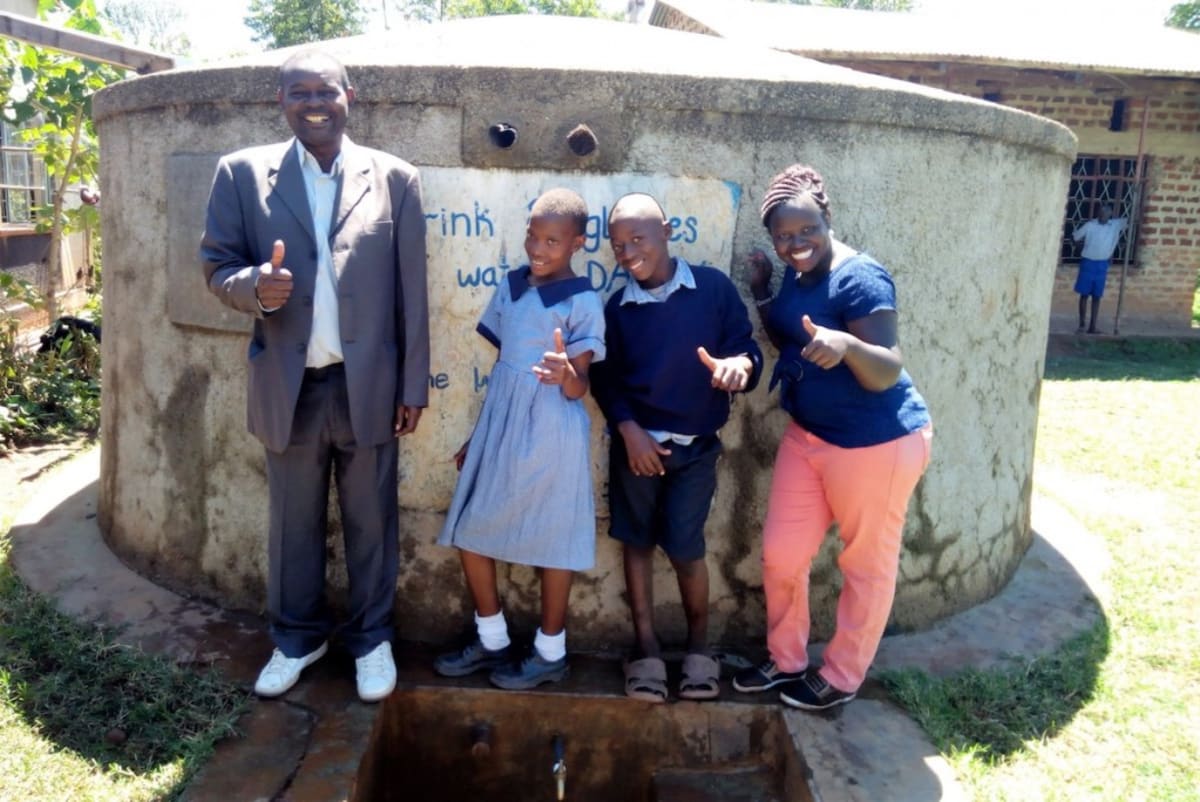

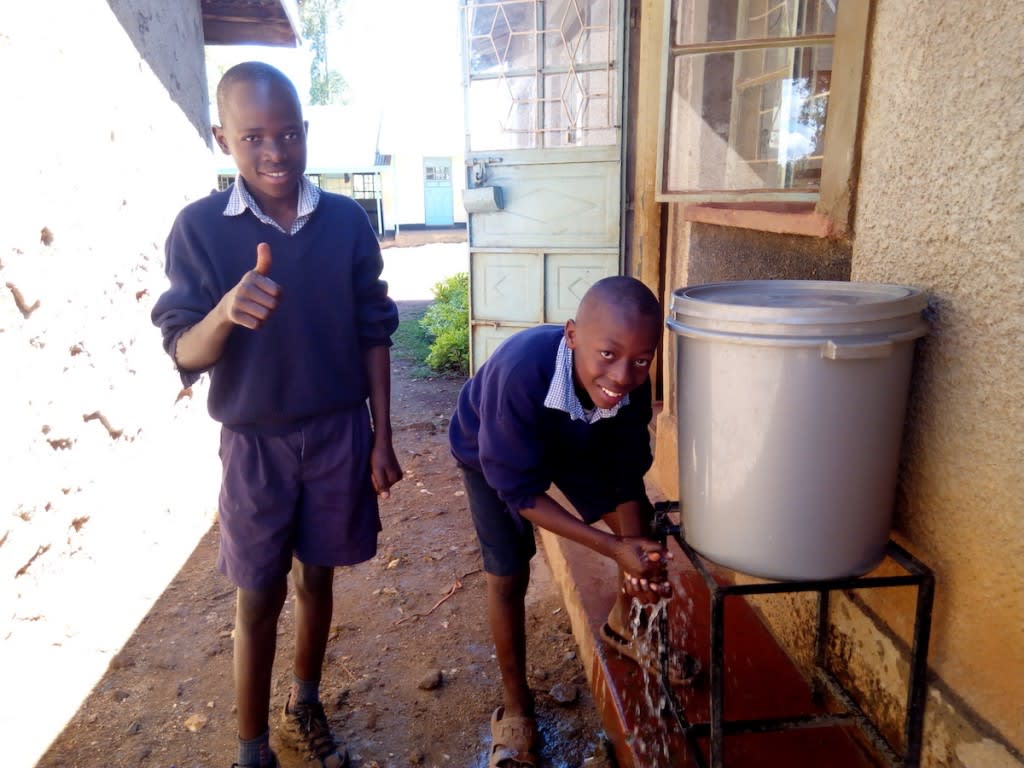
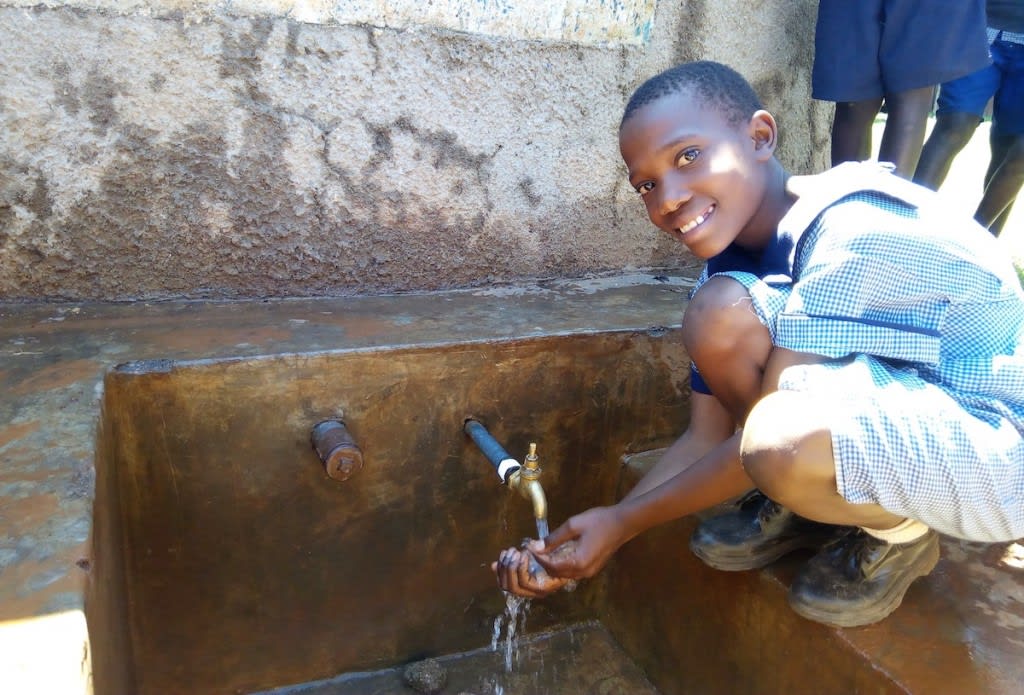
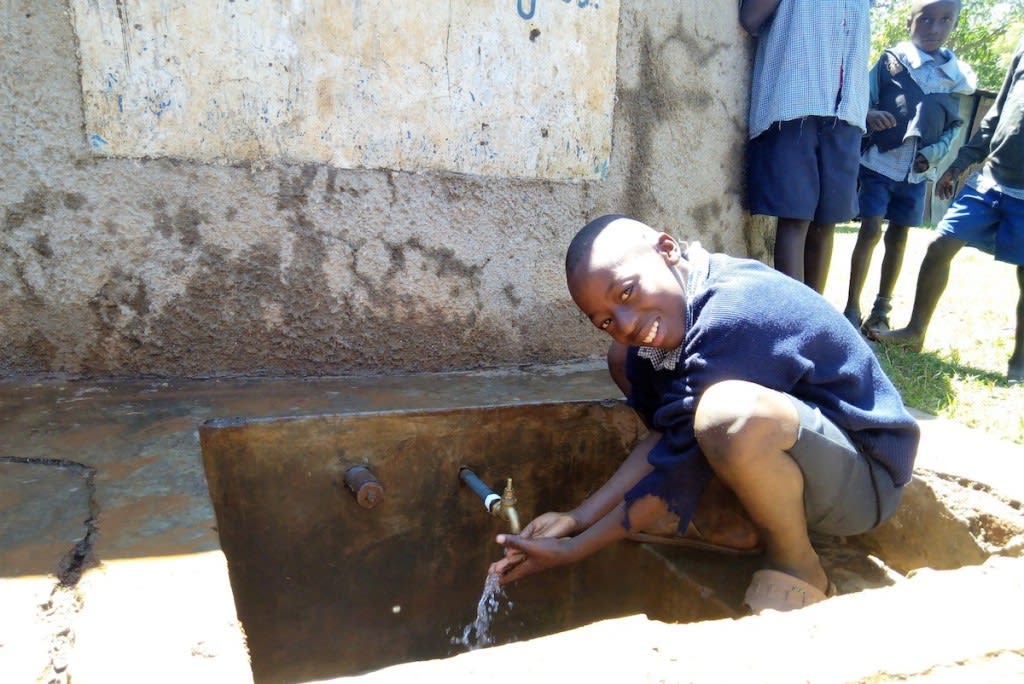
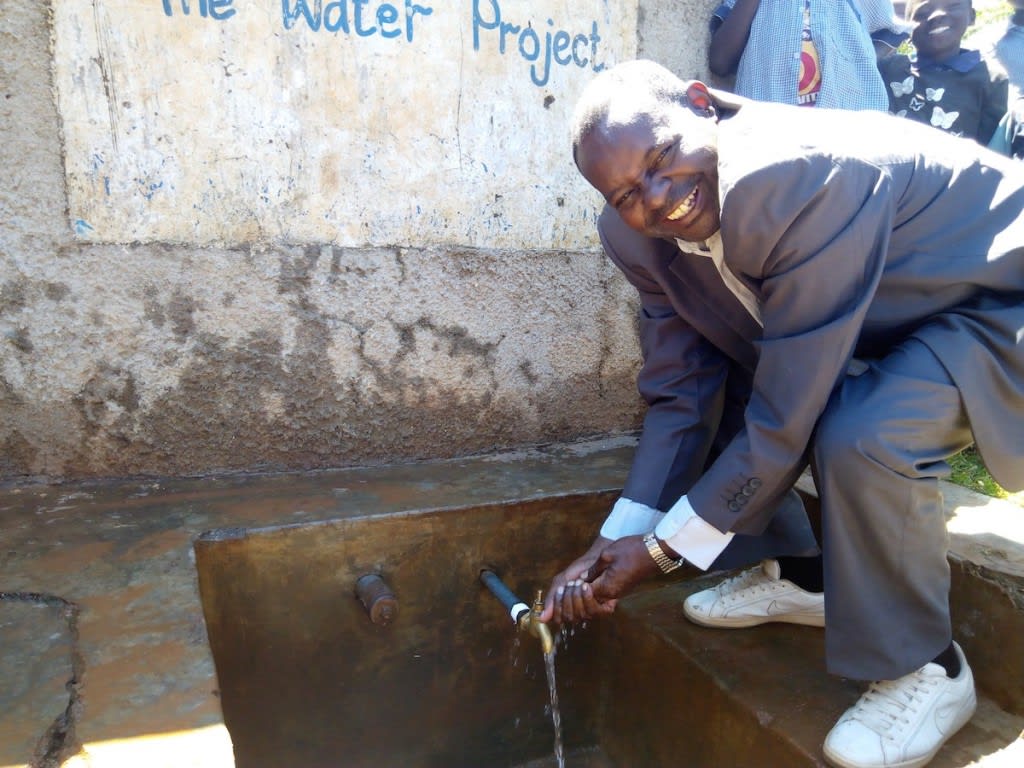 A year later, Shivakala Primary School has improved in so many ways thanks to accessing clean water on the school grounds. As we continue to monitor their progress and conduct refresher courses on hygiene and sanitation practices, we're excited to share more stories from this primary school in Kenya.
A year later, Shivakala Primary School has improved in so many ways thanks to accessing clean water on the school grounds. As we continue to monitor their progress and conduct refresher courses on hygiene and sanitation practices, we're excited to share more stories from this primary school in Kenya.